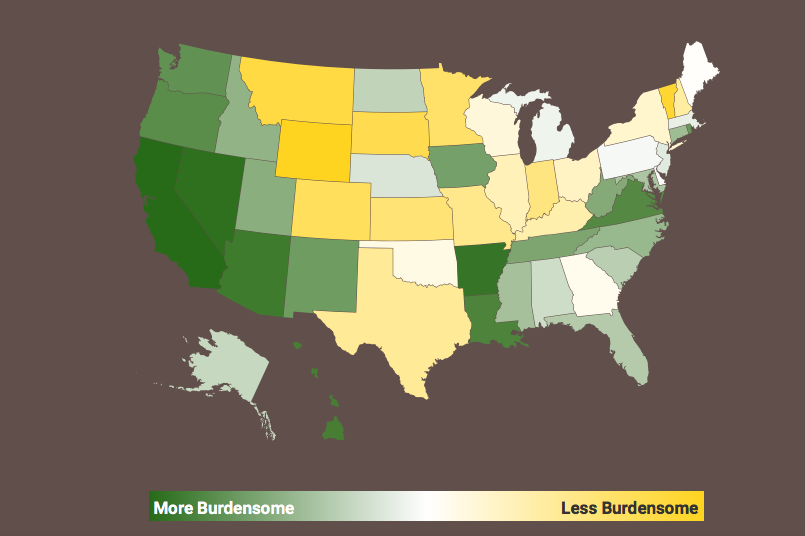Connecticut imposes “onerous” state licensing requirements on a large number of low-income jobs, according to a new state-by-state study by the Institute for Justice.
The state licensing requirements means that workers must complete state-mandated education and pay fees in order to work. The state’s requirement of a year or more education and hundreds of dollars in fees for many low-income jobs may present a barrier to job growth in a state that already has one of the slowest economies in the nation.
The study found that Connecticut imposes state licensing requirements on 64 of 102 low income jobs analyzed by the Institute for Justice, including barbers, massage therapists and locksmiths.

Connecticut is the only state in the nation to require a license to become a home entertainment installer or a forest worker. To become a home entertainment installer requires 575 days of education and experience plus a $185 fee and passage of an exam.
Connecticut’s licensing requirements for low-income jobs require $264 in fees and 361 days of education and experience on average, according to the study.
The study says that Connecticut’s licensing laws for some low risk, low-income professions are actually more onerous than those for some professions in which there is a significant public safety factor. The authors point out that a massage therapist in Connecticut has to receive more training and pay a higher fee than an emergency medical technician.
“Connecticut imposes education burdens and fees on some occupations seem excessive compared to those for other occupations that may present greater risks to the public,” the authors of the study wrote.
Connecticut has made some headway in reducing occupational licensing requirements recently. During the legislative session, lawmakers reformed the licensing requirements for barbers and hairdressers so they could receive a license despite having a prior criminal conviction.
However, the state requirements to become a barber or hairdresser still remain daunting: 1,500 hours of schooling at an approved school, a state exam and a $100 fee.
The Institute for Justice study states that there is little evidence that such requirements actually benefit the public, but rather raise costs and slow economic growth. “Researchers have found that licensing reduces access to jobs, inhibits geographic mobility and raises the costs of services.”
The Institute for Justice study mirrors some of the findings in Yankee Institute’s study, Waiting to Work, which found that occupation licensing raised consumer prices and lowered job opportunity.
Less restrictive states like Texas and Colorado have also become hot-beds of job growth and economic growth, although California was the most restrictive state, but still has strong personal income and population growth.
Massachusetts and New York were both ranked better than Connecticut, although Rhode Island was the worst-ranked state in New England. Vermont was ranked as the least restrictive state in the nation.
“Connecticut should consider reducing or repealing such unnecessary licensing burdens, or—if government regulation is necessary—replacing them with less restrictive regulatory alternatives,” the study concluded.

